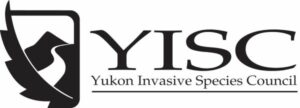Invasives Canada has strength through its network of Chapters located across Canada from coast to coast to coast. From the Yukon to Prince Edward Island, there are currently 11 provincial/territorial chapters, each dedicated to providing leadership and delivering take-action campaigns.
While working to address specific provincial or territorial issues, all are united in working together to build consistent messaging and resources to help Canadians implement responsible actions. Each Chapter is unique in its structure and mandate, and all of them work to build bridges in their area and deliver programs that address local issues.
Alberta Invasive Species Council
The Alberta Invasive Species Council (AISC) is a not-for-profit society dedicated to informing and educating Albertans about the destructive impacts invasive species have on our environment, economy, and society. The AISC endeavors to foster partnerships with jurisdictions, agencies and groups to collaboratively develop integrated, long-term management programs, and to engage and empower people to take action against invasive species in Alberta. Visit their website www.abinvasives.ca

Invasive Species Council of British Columbia
The Invasive Species Council of BC (ISCBC) is a registered charity that aims to improve the coordinated management of invasive species across the province and beyond borders. The Council works with agencies and residents collaboratively to minimize the environmental, economic, and social impacts of invasive species. The Council works through building collaboration on mutual priorities determined by its diverse membership. The Council’s representative Board of Directors implements members’ key priorities in collaboration with Regional Committees and other partners. For more information, visit their website www.bcinvasives.ca

Invasive Species Council of Manitoba
The Invasive Species Council of Manitoba (ISCM) is a nonprofit organization providing a centralized and coordinated province-wide leadership body & adopting a collaborative approach to the prevention, early detection, management and potential eradication of invasive species in Manitoba. Visit their website www.invasivespeciesmanitoba.com
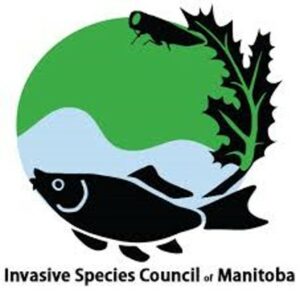
New Brunswick Invasive Species Council
The New Brunswick Invasive Species Council (NBISC) is a network comprised of NGOs, government, industry, and recreational stakeholders interested in collaborating on invasive species issues in New Brunswick. The goal of NBISC is to strengthen existing partnerships and to coordinate efforts to create a unified provincial response to the emerging environmental, economic, and recreational threats of invasive species. For more information visit their website www.nbinvasives.ca.
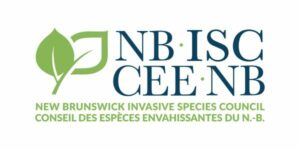
Northwest Territories Council on Invasive Species, Pests and Pathogens
The Northwest Territories Council on Invasive Species, Pests and Pathogens (NWTCISPP) is a non profit who works to provide information, advice, and recommendations to management authorities and other decision makers about threats, best practices, planning, prioritization, and emerging concerns related to invasive species, pests, and pathogens. Through education and public awareness, the NWTCISPP empowers people to take action against invasive species. For more information, visit their website www.nwtcispp.ca.
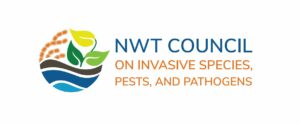
Nova Scotia Invasive Species Council
The Nova Scotia Invasive Species Council (NSISC) is a collaborative, volunteer-based group of individuals and organizations with representation from academia, government, and non-government organizations. Their main objective is to raise awareness and promote a coordinated response to the threat of invasive species in Nova Scotia. For more information visit their website www.nsinvasives.ca.

Ontario Invasive Plant Council
The Ontario Invasive Plant Council (OIPC) is a non-profit, multi-agency organization founded in April 2007 by a group of individuals and organizational representatives who saw the need for a coordinated provincial response to the growing threat of invasive plants. The OIPC is currently housed within the Ontario Federation of Anglers and Hunters, a non-profit, charitable organization providing the OIPC with administrative support and office space in its initial stages. Their purpose is to facilitate a coordinated and effective response to the threat of invasive plants by providing leadership, expertise, and a forum to educate, motivate and empower organizations and citizens. For more information, visit their www.ontarioinvasiveplants.ca.
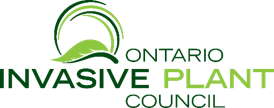
Prince Edward Island Invasive Species Council
The Prince Edward Island Invasive Species Council is a non-profit organization focused on raising awareness and understanding about invasive species and the negative impact they have on PEI’s environmental, economic and social health. The Council, comprised of representatives from various organizations and levels of government, is working towards creating a framework for the management of invasive species on PEI. The Council promotes public awareness through the use of educational tools such as IS publications, workshop presentations and their website www.peiinvasives.com.
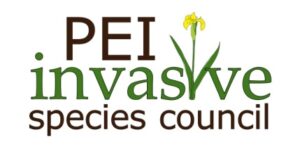
Conseil québécois des espèces exotiques envahissantes
The CQEEE is a non-profit organization whose mission is to facilitate the coordination of the activities of many organizations involved in the fight against invasive alien species. This consultation work with experts, researchers, representatives of governments, industry and associations aims to improve the prevention, detection and management of invasive alien species and thus, with a view to shared, contribute to better protection of environmental health and economic activities that may be affected by this phenomenon.

Saskatchewan Invasive Species Council
The Saskatchewan Invasive Species Council (SISC) is a not-for-profit association of professionals from federal, provincial, municipal governments, industry and non-government organizations. Council members are knowledgeable on invasive species or their management. The SISC was formed in 2008 to address the lack of coordination and understanding associated with invasive species within the province of Saskatchewan and across Canada. Their vision is to work together to ensure Saskatchewan’s environment, economy and social interests are protected through permanent control and eradication of invasive alien species. For more information, visit their www.saskinvasives.ca.
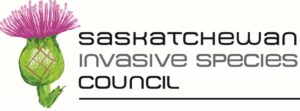
Yukon Invasive Species Council
The Yukon Invasive Species Council (YISC) is a registered non-profit society formed to prevent the introduction and manage the spread of invasive species in the Yukon. This is accomplished by educating and advising the public and professional about invasive species and their risk to ecosystems and economies; actively collaborating with other jurisdictions; and encouraging, promoting, and supporting research on invasive species. For more information, visit their website www.yukoninvasives.com.
